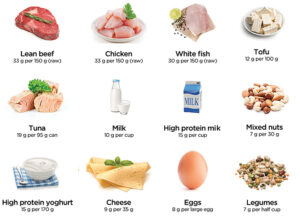
Navigating the challenges of weight loss over 40 can feel like a complex puzzle, but it’s far from impossible. The right strategies can make a world of difference, especially during a time when your body begins to respond differently to diet and exercise. Whether you’re dealing with a slowing metabolism after 40 or the hormonal changes brought on by menopause, understanding how to lose weight in your 40s requires a blend of knowledge, patience, and actionable steps. This is not just about shedding pounds; it’s about embracing a healthier lifestyle that aligns with your body’s needs and your personal goals.
In this article, we will explore five proven fat loss strategies tailored for those wondering how to lose weight over 40. From optimizing your diet to incorporating regular exercise, managing stress effectively, and ensuring you’re getting quality sleep, each section provides practical advice that you can start applying today. We’ll also look at how to boost metabolism after 40, a key factor in successful weight loss for women and men alike. Let’s embark on this journey together, equipped with the right information and a positive mindset, to achieve and maintain a healthy weight as we age.
Optimise Your Diet

Choose Nutrient-Dense Foods
Focusing on nutrient-dense foods is crucial, especially as you enter your 40s. Incorporate a variety of vegetables, lean proteins, and whole grains into your diet. Non-starchy vegetables like spinach and cucumbers are low in calories but high in fiber and essential nutrients, helping you feel full without overeating. For protein, opt for sources like lean meats, poultry, seafood, and legumes, which are vital for maintaining muscle mass and overall health.
Monitor Portion Sizes
Controlling portion sizes is a key strategy in managing your weight. Use smaller plates and bowls to help reduce the amount you eat without feeling deprived. Studies show that people tend to eat nearly all of what they serve themselves, so by reducing the size of your dishes, you can significantly cut down on calorie intake. Additionally, be mindful of restaurant servings, which are often much larger than standard portions, and consider asking for a half portion or taking leftovers home.
Incorporate Lean Protein
Increasing your intake of lean protein can enhance satiety and help prevent muscle loss, which is common in your 40s. Foods like skinless chicken breasts, fish, legumes, and eggs are excellent sources of high-quality protein that support weight management and muscle health. Aim to include a source of lean protein at every meal to help keep you feeling full and satisfied while providing the nutrients your body needs to function optimally.
By implementing these strategies into your daily routine, you can optimize your diet for better health and effective weight management as you age.
Integrate Regular Exercise

Strength Training Benefits for Over 40
Strength training is crucial as you age, particularly in your 40s. It helps build and maintain muscle mass, which supports bone health, boosts metabolism, and enhances physical function. Regular strength training not only helps in increasing muscle mass but also aids in improving your metabolism, which can be particularly beneficial for weight loss over 40. By incorporating exercises like squats, deadlifts, and bench presses, you utilize multiple muscle groups, increasing your calorie burn and enhancing muscle strength.
Incorporate Aerobic Activities
Aerobic activities such as walking, jogging, cycling, and swimming are essential for improving cardiovascular health and aiding weight management. For instance, a moderate pace in swimming can burn significant calories, helping in effective weight management. Additionally, cycling, whether outdoors or on a stationary bike, has been shown to improve overall fitness and lower the risk of chronic diseases. Integrating these activities into your routine for at least 150 minutes per week can lead to substantial health benefits and aid in losing weight in your 40s.
Flexibility and Stretching for Over 40
Maintaining flexibility through regular stretching exercises can prevent injuries and improve your overall mobility, which tends to decline with age. Dynamic stretches, which involve gentle movements, can be particularly beneficial in maintaining muscle length and preventing stiffness. Incorporating flexibility exercises like yoga and Pilates not only helps in improving flexibility but also contributes to better posture and muscle balance, which are crucial for overall body function as you age.
Manage Stress Effectively over 40

Understand the Impact of Cortisol
Cortisol, often referred to as the stress hormone, plays a pivotal role in how your body responds to stress. It’s crucial to understand that prolonged elevation of cortisol levels can lead to significant health issues, including weight gain, especially in the abdominal area. Studies have found that high cortisol levels can increase appetite and drive abdominal fat storage. Managing your cortisol levels through stress reduction techniques and lifestyle changes is essential for maintaining a healthy weight and overall well-being as you age.
Stress Reduction Techniques
Incorporating stress reduction techniques into your daily routine can significantly lower cortisol levels and enhance your quality of life. Techniques such as deep breathing exercises, progressive muscle relaxation, and engaging in hobbies can reduce stress. Exercise is also a potent stress reliever; it not only helps lower cortisol levels but also boosts your mood by releasing endorphins. Establishing a regular routine of these activities can help manage stress effectively, promoting better health and preventing stress-related overeating.
Mindful Practices like Yoga and Meditation
Mindful practices such as yoga and meditation have been shown to effectively manage stress and reduce cortisol levels. Yoga combines physical postures, breathing exercises, and meditation to enhance overall health and stress management. Regular yoga practice can help balance hormones, reduce anxiety, and support emotional health during menopause. Meditation, on the other hand, encourages a state of awareness and presence, helping to calm the mind and reduce stress. Studies indicate that mindfulness and meditation can shrink the amygdala, the brain’s fight-or-flight center, and reduce the production of cortisol, thereby aiding in stress management and weight control. Incorporating these practices into your daily routine can provide significant benefits in managing stress and maintaining a healthy weight in your 40s.
Get Quality Sleep over 40

Importance of Sleep for Weight Loss
Sleep plays a crucial role in regulating metabolism and appetite, which are key factors in weight management. Studies have shown that poor sleep can increase levels of ghrelin, the hormone that signals hunger, and decrease levels of leptin, which tells the body it’s full. This imbalance can lead to increased appetite and cravings, making it harder to maintain a healthy weight. Additionally, lack of sleep can slow down your metabolism, making it more difficult to burn calories effectively.
Establishing a Sleep Routine
Creating a consistent sleep routine is vital for enhancing sleep quality and supporting weight loss efforts. Aim to go to bed and wake up at the same time every day, even on weekends, to keep your circadian rhythm—the body’s natural sleep-wake cycle—in check. This helps regulate your sleep patterns, making it easier to fall asleep and wake up naturally. Additionally, engaging in relaxing activities before bedtime, such as reading or taking a warm bath, can improve sleep quality.
Avoiding Sleep Disruptors
To further enhance sleep quality, it’s important to avoid factors that can disrupt sleep. These include heavy meals, caffeine, and electronic devices before bedtime. Eating large or heavy meals can lead to discomfort and indigestion, which can interfere with sleep. Caffeine, a known stimulant, can prevent you from falling asleep if consumed late in the day. Similarly, the blue light emitted by screens can inhibit the production of melatonin, the hormone that promotes sleep, so it’s advisable to set an electronic curfew a couple of hours before bed.
Implementing these strategies can help improve your sleep quality, which is a crucial component of effective weight management in your 40s.
Conclusion
Throughout this article, we’ve explored a comprehensive suite of strategies designed to address the unique challenges of losing weight in your 40s. From the benefits of choosing nutrient-dense foods and the importance of integrating strength training and aerobic exercises, to managing stress and securing quality sleep, each strategy provides a building block towards achieving a healthier lifestyle. Emphasising the importance of lean proteins, portion control, and stress relief techniques, we have underscored not just the path to weight loss, but the journey towards improved overall well-being as you navigate through the pivotal decade of your 40s.
As we conclude, remember that the journey of weight loss and maintaining a healthy lifestyle is both personal and gradual, requiring patience, commitment, and a positive mindset. The strategies discussed offer a practical roadmap, but the journey towards your health goals is unique to you. For personalised guidance and support tailored to your individual needs, CLICK HERE to speak to a coach today.
Embrace the journey with confidence, knowing that the steps you take today towards a healthier lifestyle are investments in a vibrant and dynamic future.
As always be sure to check out more of BLOG ARTICLES and our PODCAST .
FAQs
1. What are effective strategies for losing body fat in your 40s?
To effectively lose body fat in your 40s, it’s important to adopt several healthy habits:
- Eat well: Adjust your diet as your body’s needs change with age.
- Stay active: Despite a busy schedule, find time to exercise.
- Set realistic goals: Be practical about what you can achieve.
- Focus on sleep: Ensure you get enough rest.
- Consider intermittent fasting: This can help manage calorie intake.
- Stay positive: Forgive yourself for setbacks and adjust your plans as needed.
2. Which five foods can help reduce belly fat?
Certain foods can aid in burning belly fat more effectively. These include:
- Foods high in soluble fiber: Such as fruits, vegetables, and legumes.
- High-protein foods: Including meat, fish, eggs, and dairy products.
- Fatty fish: Examples are tuna and salmon.
- Probiotic-rich foods: Like yogurt, kefir, sauerkraut, and kimchi.
- Green tea: Known for its metabolism-boosting properties.
3. How can someone lose 10 kg in just 7 days?
Losing 10 kg in a week is extremely challenging and can be unsafe. However, here are some strategies that are often suggested:
- Increase protein intake and add fiber-rich foods to your diet.
- Avoid fats and carbs: Focus on healthier alternatives.
- Manage water retention: This can temporarily change body weight.
- Adhere to specific diet plans like the IU diet.
- Control meal portions and engage in high-intensity interval training (HIIT) multiple times a day.
- Try intermittent fasting: This may help reduce calorie intake.
4. How do you lose stubborn fat after turning 40?
Losing stubborn fat after 40 requires a combination of lifestyle changes:
- Engage in regular exercise: Focus on both cardio and strength training.
- Watch portion sizes: Avoid overeating by controlling how much you eat.
- Emphasize complex carbohydrates: Such as whole grains over simple carbs.
- Limit sugar intake: Reduce sugary foods and beverages.
- Increase intake of lean proteins: Helps build muscle and burn fat.
- Eat healthy fats: Opt for sources like avocados and nuts.
- Start meals with vegetables: Helps fill you up with fewer calories.
- Don’t skip meals: Eating at regular intervals supports metabolism.


